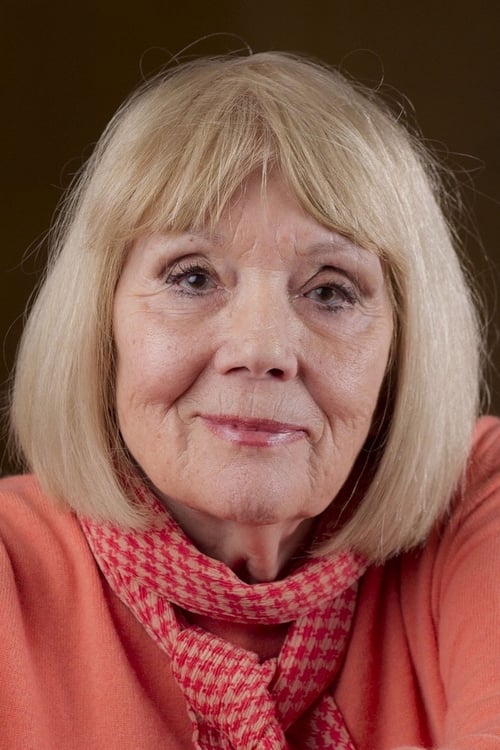Dame Enid Diana Elizabeth Rigg DBE (20 July 1938 - 10 September 2020) was an English actress. She played Emma Peel in the TV series The Avengers (1965-1968) and Olenna Tyrell in Game of Thrones (2013-2017). She has also had a career in theatre, including playing the title role in Medea, both in London and New York, for which she won the 1994 Tony Award for Best Actress in a Play. She was made a CBE in 1988 and a Dame in 1994 for services to drama.
Rigg made her professional stage debut in 1957 in The Caucasian Chalk Circle, and joined the Royal Shakespeare Company in 1959. She made her Broadway debut in the 1971 production of Abelard & Heloise. Her film roles include Helena in A Midsummer Night's Dream (1968); Countess Teresa di Vicenzo, wife of James Bond, in On Her Majesty's Secret Service (1969); Lady Holiday in The Great Muppet Caper (1981); and Arlena Marshall in Evil Under the Sun (1982). She won the BAFTA TV Award for Best Actress for the BBC miniseries Mother Love (1989), and an Emmy Award for her role as Mrs. Danvers in an adaptation of Rebecca (1997). Her other television credits include You, Me and the Apocalypse (2015), Detectorists (2015), and the Doctor Who episode "The Crimson Horror" (2013) with her daughter, Rachael Stirling.
Description above from the Wikipedia article Diana Rigg, licensed under CC-BY-SA, full list of contributors on Wikipedia.
Engaging, plausible and entertaining the ENTP personality type will be like a breath of fresh air, infusing people and situations with a whole array of new ideas and creative ways of doing things. However, they can become bored and withdraw their energies as they go off in search of the next thrill. Curious, child-like wonder characterises the ENTP, they are flexible, open-minded and love possibilities. They tend to see everything as a challenge, seeing opportunities even in the most difficult of circumstances. ENTPs can at times display impatience with those whom they consider wrong, and may show little restraint in demonstrating this.
The ENTP is constantly on the lookout for opportunities and possibilities, which will feed their strong desire for something new. An ENTP will bring energy, dynamism and creativity to people and projects. They are of the moment and are great at creating momentum for anything new but may become bored after the initial fascination has passed. ENTPs love telling conceptual stories. They will often go off at tangents, weaving apparently contrary pieces of information into a conceptual whole, bringing others in and teaching them in the process. Curious, communicative and challenging, the ENTP loves intellectual debate, is spontaneous, (at times shockingly so), and assertive. They sometimes confuse, even hurt, those who don't understand or accept the concept of debate or argument simply as a ‘sport.’ ENTPs are as innovative and ingenious at problem-solving and verbal gymnastics, as they are bored with the routine and the detail.
They are also far better at the 'front end' of projects and may slide out when it becomes tedious. The ENTP is expedient, and can disregard rules, regulations and even obligations and follow their own instincts and urges. The upside of this is the ability to bring whole new perspectives and ways of looking at things. The downside is that they may leave loose ends, and lack follow-through. The ENTP's independent streak make them excellent at challenging the status quo, self-deception and self-delusion, but this challenging can, at times, become critical or negative if the ENTP becomes bored or feels stultified or threatened.
They have a kaleidoscope type vision, seeing all the disparate parts and then, in one twist, pulling them all together into something often quite wonderful. These characteristics also mean the ENTP can be intellectually promiscuous, enjoying one new experience after another, one new idea after another and constantly looking for bigger and better things. ENTPs are excitable and this excitement is very often contagious. They have ‘the gift of the gab,’ and are at ease in social situations, winning people over and can adapt to any level and any conversation - if it interests them. They are generally confident and possess the ability to look far beyond the present, the mundane, the facts and the horizon. However, their dislike of detail, practicalities and closure, often means that their dreams, aspirations and ideas may come to nothing as they can lack the propensity for follow through and the attention to detail required to ‘complete.’ This does of course make the ENTP very flexible and they have the ability to change tack in a nano-second much to the consternation of those following, who ask ‘but I thought we were going in that direction?’ Radical experimenters, rules are there to be (gently but firmly) bent; they like to get their own way and will happily rationalise, intellectualise and build a sophisticated argument to prove they were right. Of course, next week they may change their minds because ‘right’ for the ENTP is about what is right for ‘now.’ ENTPs are nothing if not unique, having an enquiring mind, real sense of adventure and excitement for new ideas and opportunities. They thrive on a new challenge, the more impossible it seems, the more thrilling it is! But smaller, less significant issues can really get to them and see them becoming scratchy and impatient, and this will communicate itself to anyone in the vicinity
Choose another celebrity type to compare side by side the different approaches work, attitudes to conflict and the way they engage with others.
